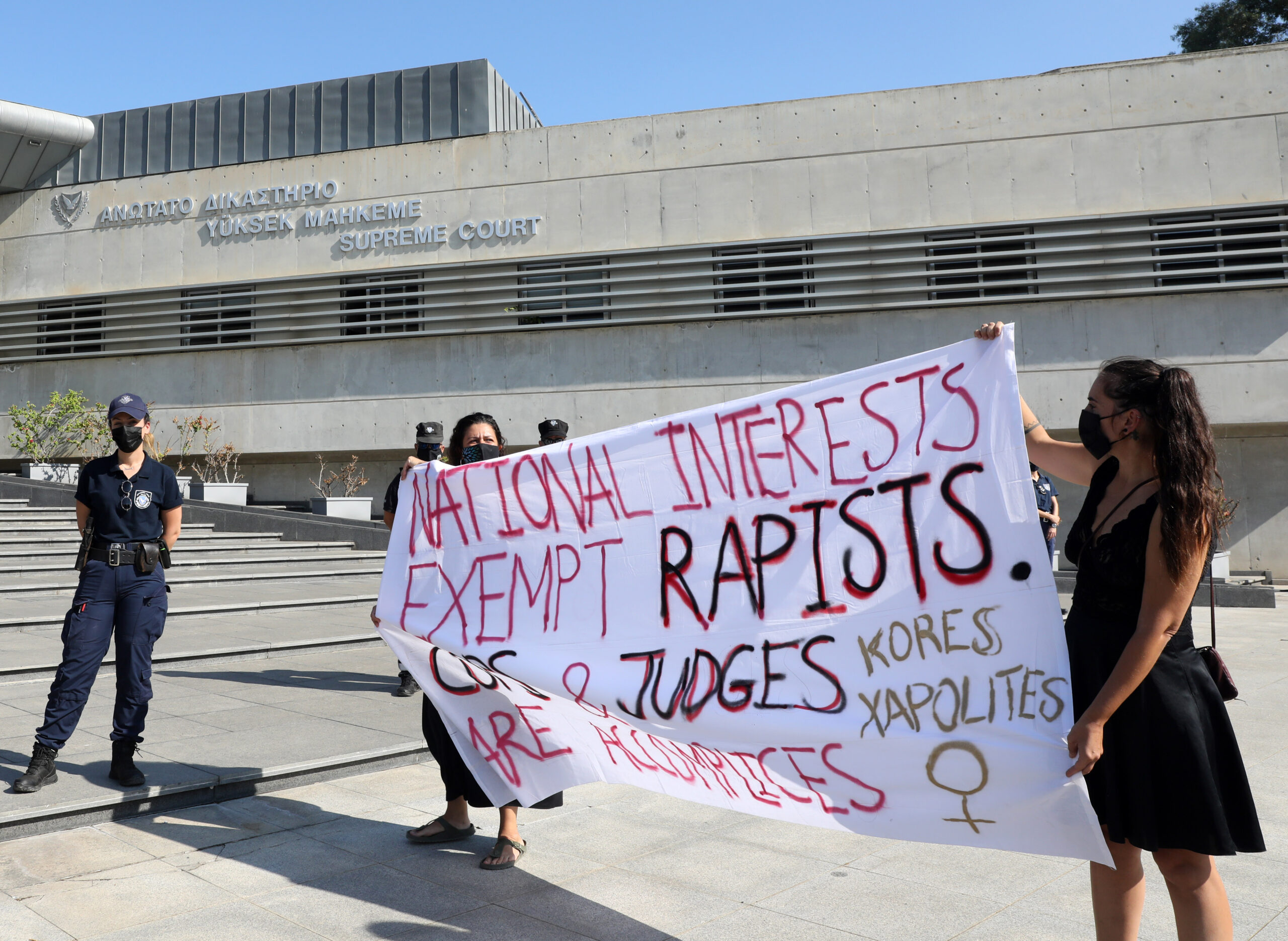It took a young British woman undaunted by her traumatic experience to give the dysfunctional Cyprus justice system a bloody nose.
She had to suffer being victim-blamed in a rape case, branded a liar, convicted for wasting police time and have her life put on hold after being dragged through the legal mire.
A British tourist in Ayia Napa having the normal fun of a teenager on holiday was traumatised by what appears to be an organised sexual assault.
Despite her nightmare, she had the courage to go to the police and file a complaint about her ordeal.
This was a 19-year-old girl from derby in a foreign country having to relive her gang rape in a place where nobody wanted to listen.
It was bad for publicity for a tourist to claim that a dozen Israelis had sexually attacked her.
From the start, she was viewed as a troublemaker, treated with suspicion, not somebody who needed protecting or psychological help.
What else would explain her treatment by the police, denied a lawyer in their bid to get a retraction of her statement?
She entered Ayia Napa police station to make a supplementary statement about what happened and ended up retracting her accusation.
It wasn’t enough for the justice system to humiliate the woman; she was then put on trial for causing public mischief.
Inevitably the court wasn’t interested in whether she had been raped but only that she gave the police a hard time.
A district court convicted her of public mischief in a case that reeked unfairness and shoddy police work.
The case said more about how women of sexual violence are treated than it did about any sense of justice.
To shine a light on the embarrassing state of affairs, it took an appeal before the Supreme Court to ensure justice was done.
It quashed the woman’s conviction, highlighting a litany of mistakes and oversights that should have troubled the lower court judge.
Nobody put their hand up to apologise for damaging a young life and shutting the door on her pain.
There are lessons to learn how the woman was treated, but there is every likelihood it could happen again.
The attorney general is studying the case file because there is now an unsolved gang rape.
And the police said they would review whether mistakes were made after the British woman was cleared of lying about being gang-raped by 12 Israeli tourists in 2019.
From the court ruling, it is clear the police did not do their job properly.
Influence
It was another predictable systems failure that befalls those without wealth or influence.
Defence lawyers successfully argued there had been a miscarriage of justice when a district court in January 2020 found her guilty of public mischief and handed her a suspended four-month jail term.
The woman, now aged 21, had in July 2019 told police she had been raped by the Israeli tourists, aged 15 to 22, in a hotel room in Ayia Napa.
She was charged after retracting her initial complaint but later said she had been coerced to do so by the police.
The Supreme Court said the young woman, then 19, was put through a trial process that was “manifestly unfair”.
“A 19-year-old was summoned to the police station in the afternoon for additional testimony as a complainant, only to be questioned as a suspect six hours later, that is after midnight.
“She appears to have made a voluntary statement at 01:15 without the presence of a lawyer,” the court said.
The prosecution argued that she had been “uncooperative and aggressive”, yet some 40 minutes later, she admitted to making “a big mistake”.
UK-based Justice Abroad, who coordinated the appeal against the conviction, called for the case to be reopened and an inquiry into what went wrong.
As the alleged culprits live in another country, it is unlikely there is much enthusiasm to reopen the case.
Some suggested there was pressure to get the rape claims dropped because it could harm Nicosia’s close relations with Israel.
Even the mayor of Ayia Napa at the time (now the transport minister) threatened to sue the woman for defaming the popular resort.
That is the kind of backwater mentality the Briton came up against.
Nobody in authority was looking for justice; they wanted to make an example of the woman and hope that it would scare her away.
Consequently, Cyprus is now stereotyped as a hostile, justice-free hotspot for outsiders.










